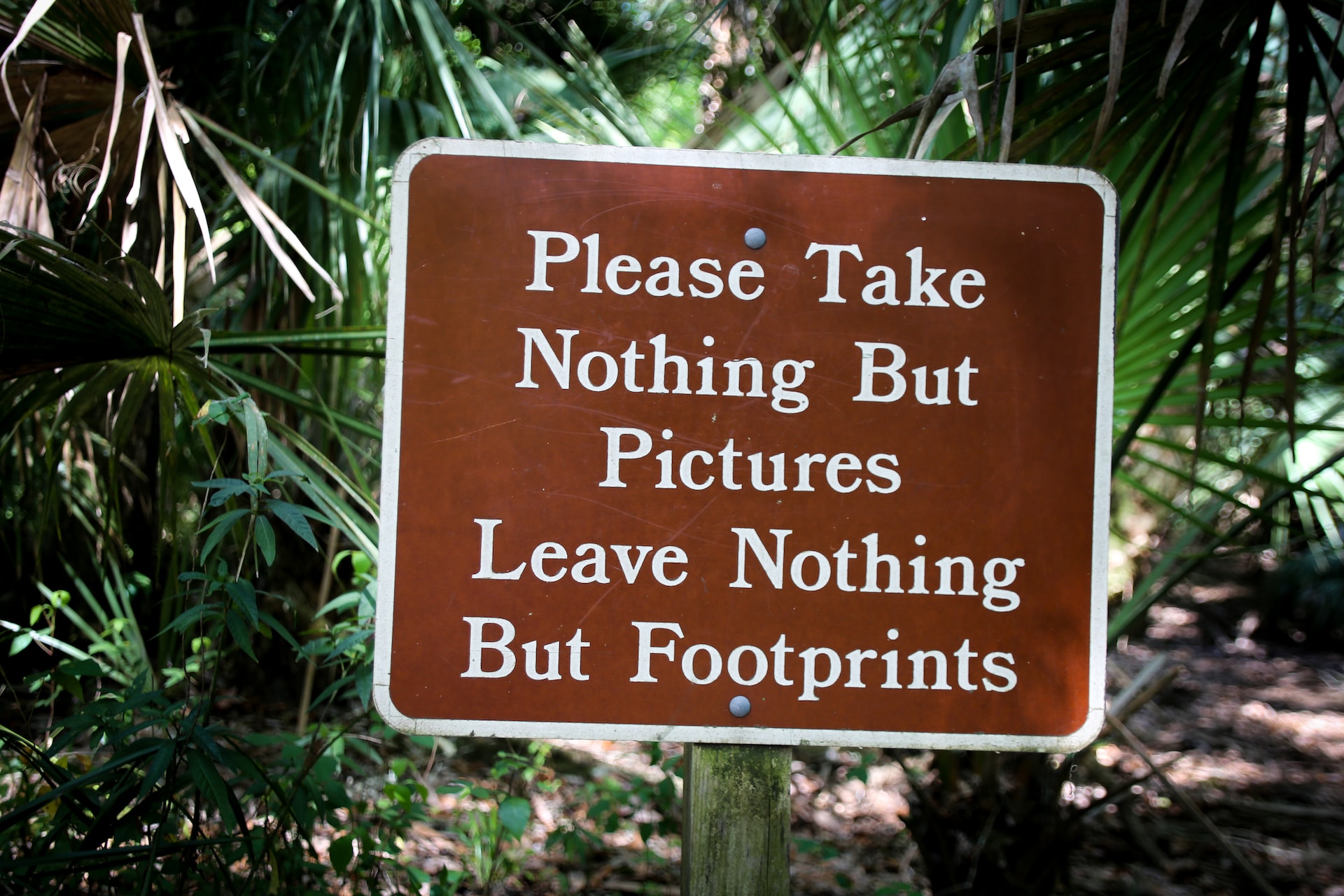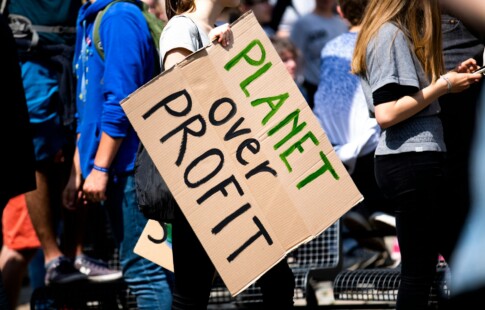
Environmental Ethics: What it Is and Why it Matters
We are reader-supported. When you buy through links on our site, we may earn affiliate commission.
An anthropogenic approach — human first — to utilizing resources repeatedly leads to ecological degradation and loss of biodiversity. Conversely, ensuring the conservation of nature allows everyone and everything to flourish.
Environmental ethics — what we believe and how we behave toward the planet — determines its survivability or collapse. By altering views for a planet-first attitude, humanity ensures the availability of essential resources for current and future generations.
This article will define environmental ethics and explain its importance before describing ways to adopt an ecologically-ethical lifestyle.
What Is Environmental Ethics?
Applying ethics — a standard of conduct — to the environment helps to differentiate right or wrong behaviors. For example, an aquarium focuses on animal welfare and educating the public about marine species. Many aquariums also house endangered species we might lose in the wild.
About 183 million Americans visit aquariums and zoos annually to learn about their favorite sea creatures. Although some argue that aquariums are crucial for conservation and education, others declare all species should be free.
Individual morals and attitudes toward the environment determine what is right or wrong. How we utilize the Earth’s land and natural resources pertains to these attitudes.
Why Is Environmental Ethics Important?
Environmental ethics is the moral ground on which we protect the planet. Some would call it “ecological consciousness” — a means of living sustainably and harmoniously with nature. When we lack a sense of morals and ethics, we pollute, knowingly harm or kill endangered wildlife and overconsume resources.
The term “deep ecology” has become a core facet of environmental ethics — the idea that people must radically alter their relationship with nature by giving it intrinsic value. Nature’s intrinsic or inherent value means it holds significance outside of human usefulness — the aesthetic of a pristine environment is equally or more important than cutting down a forest to meet human needs.
Upholding environmental ethics enables the social framework of protecting the Earth. Viewing the Earth with a moral sense allows us to visualize solutions for some of the worst ecological issues. Therefore, personal convictions of nature’s proper treatment could significantly affect widespread behaviors.
The Principles of Environmental Ethics
There are several principles of environmental ethics. However, they play into the idea that humans are one with nature — when the planet suffers, so do people. Overall, ecological ethics pertains to the following tenets:
- There is a limited supply of natural resources
- We must share resources with everyone, including future generations
- Humans are responsible for protecting natural resources
- People and nature are intrinsically the same
- Economic growth is not sustainable — often, it drives environmental degradation
- Natural laws impact humans
- We succeed by cooperating with the planet
These principles shape environmental reform, social movements and personal convictions to uphold environmental integrity.
Environmental Ethics in Action
Doing the right thing can be challenging. Sometimes it demands sacrificing life’s comforts for the vitality of our planet. As a steward, you can turn your ecological values into actions that improve the world, wildlife and resources for future generations. Here are 10 ways you can make a difference.
1. Protecting Animals
The International Union for Conservation of Nature Red List includes over 150,300 species — 42,100 are endangered and threatened with extinction. Additionally, there are 100 million internationally traded animals annually.
While conservation nonprofits work tirelessly to conserve these species from climate change, poaching and habitat loss, it is equally essential for you to do your part. Restore backyard habitats, buy cruelty-free products and donate to legitimate wildlife organizations.
2. Farming Sustainably
Sustainable agriculture is a farming method that adheres to environmental protection. When farming sustainably, you ensure future generations have access to nutritious and adequate food. Farmers who adopt green farming practices look for ways to reduce water and energy consumption, preserve soil, avoid pesticides and conserve wildlife.
3. Conserving Water
Water is a common pool resource shared by all, so we must conserve it as much as possible. Nearly 68% of freshwater is locked up in polar glaciers and ice caps, while 30% is groundwater. However, only a tiny fraction is available for human consumption. Participate in clean-up efforts and eliminate chemical use to avoid contaminating water resources.
4. Green Living
Your decision to live sustainably is an important component of environmental ethics. If you want to protect the planet, you must make eco-friendly changes. Even minor acts — such as switching to plant-based diets or shopping for green products — make a difference. You might also opt to ride your bike places instead of driving to decrease emissions.
5. Reducing Plastic Pollution
The world generated 390.7 million metric tons of plastic — a 4% year-over-year increase. Much of this plastic waste bypasses landfills and recycling facilities, ending up in the ocean. As a result, marine life becomes threatened, injured and killed. Start using reusable water bottles, shopping bags and straws to reduce plastic pollution. You should also look for biodegradable products and learn how to recycle products properly.
6. Buying Local Goods
Before going to the supermarket, visit your local farmers market or farmstand instead. Buying local produce and goods reduce transportation emissions and supports local growers. Often, local foods come from organic farms that do not use pesticides and other synthetic chemicals. Farm-to-table produce also helps eliminate waste.
7. Volunteering
Putting environmental ethics into action could look like volunteer work. Do you live near a park or beach? There may be a local clean-up event you can participate in. Some communities invite people to plant trees, particularly in urban areas. Volunteering is giving back to the planet.
8. Recycling
Nearly 62% of Americans don’t know how to recycle correctly — this causes many not to altogether. Learn what you can about recycling items and make it a habit. Recycling reduces landfill waste and leakage into ecosystems. Additionally, you can compost leftover food scraps for healthy soil for your garden.
9. Limiting Energy Consumption
Make a conscious effort to reduce energy consumption at home and work. Turn off lights when you leave a room, unplug devices and purchase a programmable thermostat. Maintaining an energy-efficient home will take effort, but it is the right thing to do for climate change.
10. Supporting Green Businesses and Organizations
Many businesses have committed to being eco-friendly, from their supply chain to manufacturing to distribution of goods. Supporting green companies and organizations over brands that aren’t is a choice that makes or breaks sustainability. You do right by the environment — and progress green businesses — when you opt for sustainable brands.
Environmental Ethics Are Integral to a Healthy Planet
When we uphold our values for Earth, we make more ecologically sound decisions to protect it. Environmental ethics are critical for a healthy planet and resource conservation for future generations.
Share on
Like what you read? Join other Environment.co readers!
Get the latest updates on our planet by subscribing to the Environment.co newsletter!
About the author

Jane Marsh
Starting from an early age, Jane Marsh loved all animals and became a budding environmentalist. Now, Jane works as the Editor-in-Chief of Environment.co where she covers topics related to climate policy, renewable energy, the food industry, and more.





